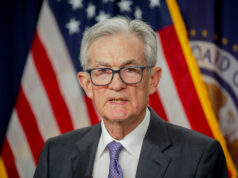Main stock index seen to hit 8,700 to 8,800 this year
By Vincent Mariel P. Galang, Reporter
PHILSTOCKS Financial, Inc. is seeing the main index finishing the year within the 8,700 to 8,800 level, backed by growth of company earnings and complemented by economic growth despite uncertainties in the local and international fronts.
“The biggest reason for the optimism would be corporate earnings. We expect corporate earnings to drive the PSEi (Philippine Stock Exchange Index) to levels 8,700–8,800. If you are going to study, and look at the statistics, the biggest driver of the level of the PSEi is corporate earnings, of course we expect economic growth to recover,” Japhet Louis O. Tantiangco, senior research analyst at Philstocks, said during the company’s briefing on its 2020 market forecast on Monday in Manila.
“The economic growth affects PSEi through corporate earnings,” he noted.
In its presentation, Philstocks projects the country’s gross domestic product (GDP) to average 6.2% to 6.6% backed by low interest rates, and the timely signing of the national budget on Monday. Also driving growth is 2019’s low base, higher consumption and government spending, but weighed by trade deficit on stronger imports.
On company earnings, the firm projects growth of 10% to 15%, driven by the recovery of the economy and projected stable inflation, amid mixed business confidence.
Mr. Tantiangco noted that too much uncertainty in the market caused by local and international issues might be the greatest hurdle for the market this year. Global issues include the on-going US-Iran tensions with the death of Iranian military commander Qassem Soleimani after an air raid by the US. “The biggest risk that the market is facing right now is the regulatory uncertainties. That is denting sentiment, and the problem is this is unpredictable. This is something that is not quantifiable. This is something that you can consider as shocks, something that just comes out then all of a sudden it causes disruptions in the market,” he said.
Philstocks Research Head Justino B. Calaycay, Jr. said on-going local regulatory issues show how “sacred” the partnership is between the private and the public sectors.
“It’s not just the water problem. It’s bigger than that. It shows how sacred contracts are that private entities enter into with the government,” he said, referring to the concession woes being faced by water services providers Maynilad Water Services Inc. and Manila Water Co., Inc.
In December, President Rodrigo R. Duterte warned water concessionaires Manila Water and Maynilad that he would scrap their contracts, claiming their concession agreements were disadvantageous to the government.
Justice Secretary Menardo I. Guevarra said his department was not considering the replacement of the two companies as water providers, but was renegotiating the terms of their contracts. Representatives of both sides are set to discuss the contracts this month.
Television network ABS-CBN Corp. is also facing difficulties in the renewal of its franchise, which will expire in March.
In a televised speech on Dec. 30, Mr. Duterte said the media firm’s franchise renewal is uncertain, and suggested that it sell the network. He had accused the network, along with privately owned Philippine Daily Inquirer, of unfair reporting,
Mr. Calaycay said the uncertainty “may be difficult for the market to grasp.”



